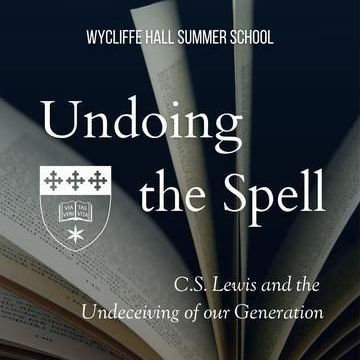Matter(s) of Integrity: A few thoughts
***
True Colours
I was in a situation a few years ago where someone I trusted and expected to act in a certain way didn’t do so. In fact, they did they did the opposite.
It hurt. It hurt because there were consequences that affected me, but it also hurt because I thought I knew the person, that I knew how’d they’d respond to pressure. When the rubber hits the road and things get real. Instead, their true colours emerged, and I was wrong. Who I thought this person was, and who they told me they were, was in reality quite different from who they actually proved themselves to be.
The specifics aren’t for posting online, but I’m sure you can relate. Most of us can recall some kind of experience of someone we love, someone whose character we trust, letting us down. Someone who you might have believed in—maybe even defended to other people—choosing to do something that shows they weren’t worthy of that trust. Showing that your assessment of them was, essentially, quite different from the reality of who they are. They lacked integrity.
Esther’s Example
This term at Wycliffe, my colleague John is teaching his way through the book of Esther for the Bible expositions in chapel. Now the book of Esther famously doesn’t even mention God: so what is its purpose? Well, in part (as my colleague has been discussing), it’s a book about wisdom. Will we learn from the wise in the story: Esther (and Mordecai)? Will learn from the foolish: King Ahasuerus? The wicked: Haman?
At the start of the book, Esther is a young, timid woman, who’d been through a lot. She was orphan and had been raised by her uncle. But she shows willingness and some social savviness and does what Mordecai tells her to do. By the end of the book she’s bold and courageous. Yes, she knows how to play the political game, but she does so in order to stand up for her people who are being persecuted by Persian imperial policy. She exposes Haman’s duplicitousness.
Esther has a remarkable integrity and commitment to who she is and what she values. She is willing to risk her life to stand up for what is right, even knowing the cost.
She has integrity. Her insides match her outsides as her character develops through the book.
When We Fail
Stephen and I go to a large Anglican church in the centre of Oxford. A couple of weeks ago, we had a visiting preacher (who is also a poet and philosopher) preaching about baptism. In the course of his sermon, he reminded us that who we really are is who we are when no-one is watching. And that Jesus died for us, knowing exactly what we do when the curtains are closed and no-one can see us.
Again, it speaks to integrity—and that Jesus has come to deal with it. If everyone else thinks I’m a model Christian, but at home, by myself, I’m angry, compulsive, critical, selfish or greedy, the latter is a far more honest assessment of who I am and needs some spiritual help. It exposes a lack of integrity: I have an exterior self who looks one way, but an interior self (that I hide away) that looks quite another. What will happen when the pressure is on? That interior self will come out, one way or another.
The good news is Jesus went to the Cross, even for that interior self. And with his help I can be forgiven, heal and become whole. That’s in part what baptism symbolises: me dying to all that ugliness and ungodliness. Naming it, owing it and leaving it with Jesus at the Cross, and then rising to a new life that where my insides match my outsides.
A person of integrity.
Learn from the Wise: Daniel 11-12
But what of the original situation: when others we trusted in and believed in have let us down?
I’ve been teaching my way through the book of Daniel and its been fascinating to muse on this topic.
Daniel 7-12 describe a series of visionary experiences that give God’s perspective on the political problems and extreme religious oppression that led to the Maccabean revolt in the 160s BC. These were largely due to the decisions of the Antiochus IV who was on the throne of the Hellenistic empire, a Greek of Seleucid descent.
You can read about Antiochus IV in 1 and 2 Maccabees, but the snapshot version is that he installed puppet high priests in the Temple at Jerusalem, looted it for money to fuel his military campaigns, outlawed the Torah (including Sabbath observance and circumcision) and, most egregiously, desecrated the Temple with pig sacrifices and an altar to Zeus.
These orders resulted in many faithful Jews having to try and keep Torah secretly. When discovered, those who had done so were public shamed and then executed (e.g. 2 Macc 6:10). It was miserable existence (2 Macc 6:9).
Antiochus IV’s diabolical political rule was one thing, but the book of Daniel also wrestles with this: what do we do when our religious leaders let us down? When their outsides don’t match their insides? When we discover they are white-washed tombs (Matt 23:27)? The high priest and many other religious establishment figures were swayed by Antiochus IV at the expense of their loyalty to the Lord Most High.
Daniel 11 and 12 in particular speak to this situation. Daniel 11:32 says that Antiochus will “seduce with intrigue those who violate the covenant” in contrast to “the people who are loyal to their God.” A few verses later we learn why: “Those who acknowledge him [Antiochus] he shall make more wealthy, and shall appoint them as rulers over many, and shall distribute the land for a price” (v.39). Antiochus used his power and means to get what he wanted, and those who showed more fidelity to him than to the God of Israel, got to share in that wealth themselves.
So, what is Daniel’s answer to when the stewards of God’s covenant and teachers of God’s law reveal their true colours? When their words and who they’ve said they are don’t match up with who they have shown themselves to be? When those around us lack integrity, what are we to do?
Well, it’s not to keep hanging on and believing in religious leaders who have proven themselves to be corrupted by political power (they are destined for shame and contempt, Dan 12:2). Daniel’s suggestion is to fix our eyes elsewhere instead:
“The wise among the people shall give understanding to many; for some days, however, they shall fall by sword and flame, and suffer captivity and plunder.” (Daniel 11:33)
Look to the wise. Look to those with understanding.
Come to understand for yourselves. But this is not an easy answer. For these are the folk that get into trouble. Who perish by the sword. They don’t look like winners. This is perhaps why Daniel’s own response to the visions is one of weakness, fear and trembling. To understand and see reality for what it is can be deeply disturbing.
In Daniel, understanding revolves around knowing God is God of all and all kings should have limits to their power. Even when kings like Antiochus IV trample on what is sacred, and transgress into the holy of holies—divine space—God through his angels is contending with powers beyond human ones and will bring all to judgement. But the waiting in the meantime will not be easy or pain-free. That’s why the promise of resurrection is so important in Daniel 12: it’s reassurance for the faithful—for the wise—to keep going. It is they who will be raised and will be like angels:
"Those who are wise shall shine like the brightness of the sky, and those who lead many to righteousness, like the stars forever and ever." (Dan. 12:3)
When those we’ve trusted and believed in fail us, God is at work. There may not be easy answers, and sitting with the reality of betrayal is painful, but God is not done yet. Sometimes what is happening is part of a much bigger, cosmic picture and God will intervene.
Others’ words and actions may not line up, but ours can. Our insides can match our outsides and our words match our actions. With God’s help we too can become “people who are loyal to their God,” those who “shall stand firm and take action.” (Dan. 11:32)
******
Cover picture: John Everett Millais, Esther, 1863–65, Oil on canvas, 77.4 x 106 cm, Private Collection



